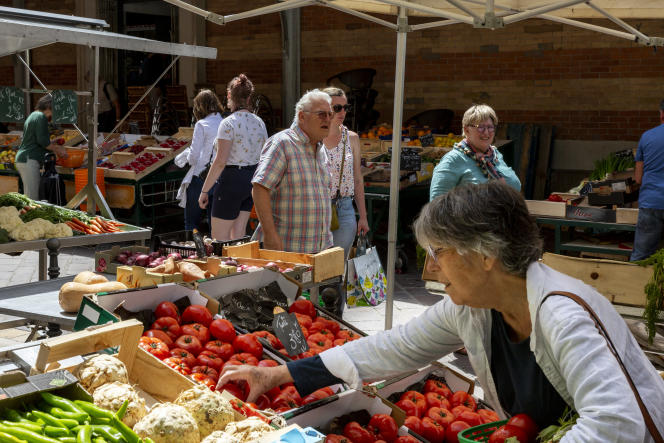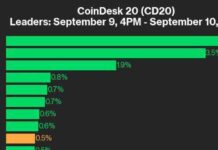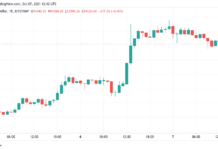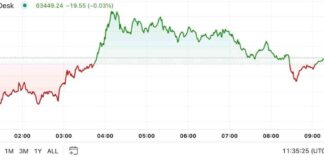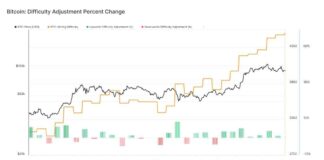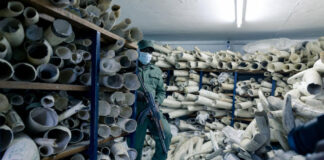The “food voucher” will ultimately not appear as a long-term measure in the law on purchasing power which is to be presented after the legislative elections. After several days of uncertainty about the planned aid in the face of the inflationary context (4.8% on food prices in one year according to INSEE), Prime Minister Elisabeth Borne confirmed at the microphone of France Bleu on Tuesday 7 June, that the government would opt for a two-step system: aid to precarious households to cope with inflation, which would be paid at the start of the school year, “directly into the bank account, in one go”; then the government would launch “a reflection on a targeted device to allow all French people to access quality products, organic products”.
A proposal resulting from the citizens’ convention on the climate, the establishment of a sustainable food voucher has not stopped being rejected by the government. When receiving the work of the convention, on June 29, 2020, President Emmanuel Macron was nevertheless enthusiastic, even citing this proposal at the top of those he “wish[ed] to see taken up”: “You are proposing food vouchers to allow the most modest to buy quality products, of this agriculture that you want to transform, of this agroecology of which you want to accelerate the promotion: you are right, “he said.
Alas, a few months later, the measure does not appear in the climate and resilience bill initially presented by the government. It just slips into this text by the vote of an amendment requesting the submission to Parliament of a feasibility report within six months. Although several inter-ministerial inspectorates – the General Inspectorate of Social Affairs (IGAS), the General Inspectorate of Finance (IGF) and the General Council for Food, Agriculture and Rural Areas (CGAAER) – have indeed conducted a joint mission in the fall of 2021, hearing several actors in the food aid and agricultural sectors, their report was never published, contrary to what the law required.
On January 18, at the National Assembly, Julien Denormandie, then Minister of Agriculture, conceded: “Yes, the food voucher is something very relevant and very useful, but it is complex to know what is the right scenario. The high inflation following the conflict in Ukraine has recently put this instrument back in the spotlight, Emmanuel Macron pledging to make it one of his first measures for purchasing power.
Several reservations in reports
According to information from Le Monde, the report of the interministerial inspections has indeed been submitted to the government. According to the summary note that we were able to consult, the report has several reservations with regard to this device, and concludes that the members of the mission are divided on its interest: if the CGAAER considers “that the instrument is able to respond to food insecurity issues not addressed today”, the IGF and the IGAS consider on the contrary that “it is not able to respond to issues that are nevertheless essential”, and, consequently, ” do not advocate its deployment”. Among the limitations of the food voucher, mission members cite its arrow format, which “restricts the choice of products, which affects the acceptability of aid”.
Despite these reservations, the report proposes to experiment with the system over three years at the level of a territory, a department for example, in order to assess in particular its “impact on the evolution of the eating behaviors of the beneficiaries”. The three inspections estimate that the instrument should target all people in a situation of food insecurity – i.e., nationally, 7 to 8 million people (11 to 12% of the population). The report recommends aid in the amount of 20 to 30 euros per month and per person, adult or child, targeted at the purchase of fresh fruit and vegetables and legumes (“win-win” products for health and the environment), and distributed via a payment card.
In this scenario, there would be no marking of products according to their origin (France or other), nor according to their mode of production. The report suggests the card will enable purchases “in the broadest distribution network”, paving the way for it to be used in big box stores. The cost of this instrument is estimated at between 1.5 billion and 3.5 billion euros per year, to which would be added 75 to 115 million euros in management fees, depending on the number of beneficiaries selected.
An expensive and fuzzy device
However, there is no indication that this outline of the device will be the one adopted by the government. Contacted, the Ministry of Agriculture did not comment on this information. According to several sources, the blockage that has persisted for several months comes from the Ministry of Economy and Finance. “Why is Bercy blocking? Because the check simply has a cost”, explained, during a press conference on Tuesday, June 7, Christiane Lambert, president of the National Federation of Farmers’ Unions (FNSEA), who pleads for a check sustainable, which would support purchasing power while getting out of a “spiral pushing prices down”.
Food aid associations, for their part, are concerned about the vagueness surrounding this instrument. The French Federation of Food Banks, which supports 2.2 million people in food insecurity, is asking the government to clarify its intentions. “Under the same name of check, the public authorities have different objectives – to fight against precariousness, to help agricultural sectors. However, a single public policy tool will not be able to solve everything, ”explains the head of institutional relations, Barbara Mauvilain. Among the points of vigilance, food banks insist on the importance of social support. “Food aid is a lever for social inclusion, it is a first open door, beyond the vital need to feed. A monetary card alone cannot do that,” Ms. Mauvilain continues.
Several associations are wondering about the complementarity of the check with existing aid. The Jardins de Cocagne network, for example, was notified a few weeks ago of the cessation of state aid of 300,000 euros which participated in the financing of its “solidarity baskets”, which benefit 6,500 families. . “The social cohesion department has finally found a boost of 150,000 euros over 2022, explains Julien Adda, director of the Cocagne Network. But it shows the fragility of these systems which do not have long-term visibility: the check must not overwhelm existing procedures. »
